Let me get this out of the way now: eating cheese right before bed might mess with your sleep if your body can’t handle lactose. Doesn’t matter what kind, Brie, Ricotta or processed cheese—seems cheeses rank high for lactose intolerance to boost nightmare odds by 10 – 15% along with digestive pain, system stress, etc. But here’s the kicker: it’s not just cheese. Foods or diets before bedtime can affect dreams, but did you know that cheese seems to take most of the blame?.
Pretty fascinating, right? Over the years, countless studies, legends, and Reddit commenters have basically pointed to digestion issues messing with your brainwaves to cause nightmares. Let’s get a little deeper into cheese, the various myths, science-mingled realities, the gut-brain connection, and, bottom line: how to enjoy cheese and nightmares blockers if you’re wanting a better night’s sleep. Because if dairy sleep problems won’t spare you from disrupted quick eye movement sleep (REM), you’ll probably want to figure this out!. So stick around and let’s dive into the nutty texture of it all….
Cheese and Nightmares: What Does Science Say?
Let’s start with the real questions — cheese-induced nightmares sounds like something out of a tall tale, but recent research suggests otherwise. A 2025 analysis of over 1,000 students ditched the folklore nonsense and focused on actual sleep disruption dairy and lactose intolerance dreams in a real-world context a study: Crucially, the findings linked lactose intolerance to increased reports of nightmares, likely due to discomfort triggering fragmented REM phases. It’s not the cheese, per-se — it’s your body screaming out, Food Network had speculated this back in 2019 surrounding digestion and dreaming but 2025’s data finally connects the dots beyond myth!
The Gut-Brain Connection: Digestive Issues and Disrupted Sleep
Here’s the lowdown when it comes to having a late-night cheese board: if you’re even slightly lactose intolerant, that semi-soft cheese-heavy spread could churn in your gut while you try to snooze. Your brain picks up on the inflammation and irritation like a stress signal, potentially fueling nightmarish dreams. We’re not making this up—researchers in 2025 actually found that stomach pain from poor digestion can alter dreams by prolonging body stress, shooting off adrenaline and wake responses.
Think about this too: lactose-intolerant people might experience flatulence or even pain during their peak REM window around 2–6 A.M. As fun as standout dreams are to recount the next day—like “I dreamed of swimming through a lake of melted Brie!”—most of us would rather not wake at 4 AM from a cheese-stuffed nightmare, right?.
Breaking It Down: How Your Hard Cheese Habit Can Influence Sleep
If you’re really invested in how cheese affects your rest, here’s a breakdown: decades has been spent on anecdotal stories surrounding cheese and vivid dreaming. But according to physiological research, cheese before bed impacts dreams for a reason tied to lactose intolerance and fatty food digestion. Let’s clear the fudge here: the blame around lactose and your bed isn’t always fair. Stay with me and I promise, we’ll lay out the facts without fearmongering around your fromage.
Does a Higher Fat Content in Cheese Make It Worse For Sleep?
You don’t need a clinical study to notice high-fat foods take longer to digest. That means a big chunk of Camembert or triple cream cheese right before bed could slow the digestive process and keep your gut far from relaxed during the hours you need to fully let go, be unbothered, and embrace positive rest. The residual discomfort isn’t just physical – it can actually influence sleep phases, agitating your REM cycles and making dreams more intense, and sometimes even nightmarish. Proof: research into food affecting sleep continuously finds high-fat meals hawk the highest overall sleep disruption for different dietary staples!
Which Cheese Drinks and Habits Actually Destroy Sleep?
Think of it as a dairy hack: timing is everything. If you’re the type to ask for triple Brie reductions or smear a crumb with goats cheese late at night, you could be stacking the deck against yourself. The front page of interest from the “A Night at Cheese School” trending event in Cleveland last April? Not just for fun, they actually explored cheese before bedtime as it relates to digestion — not every cheese serves as trouble, the video showed a clear differentiation.
Some cheeses (like mozzarella or low-fat Cheddar) are your nightcap dream team. Others (Roquefort, Brie, or even Swiss if you’re sensitive) can double up digestion confusion—leading your brain to dream havoc and REM issues. And if you mix cheese with wine or sugary snacks? At this point, your evening style is stacking cheeses with insomnia enthusiasts.
Types of Cheese That Might Haunt Your Dreams
Not all cheeses are made equal — but some are overachievers when it comes to potentially bedtime disrupted dreaming or lactose-induced dream chaos. The body’s metabolism handles harder cheeses better than soft cheeses — the bacteria used in cheddar or sharp Parmesan lower lactose levels. That’s less stress on your gut, less sleep disruption, less cheese-induced terror in your dreams.
Why Does Brie Lead the Nightmare Cheese Charts?
Last summer made the headlines: According to one study, nearly 68% of participants experienced more bizarre dreams after a big round of soft, full-fat cheeses like Brie. The Daily Mail cited the “typical suspects,” highlighting that Brie’s elevated fat and moisture hold up nightmare potential compared with stiffer styles. Harsher cheeses like aged gouda, while not dream-barren, scored highly on better sleep quality than softer cheeses.
A Selection of Hard and Soft Cheeses to Compare:
| Cheese | Lactose Content | Common Nightmare Reports |
|---|---|---|
| Brie | High Lactose | High |
| Blue Cheese (Roquefort, Gorgonzola) | Moderate Lactose | High |
| Cheddar | Low Lactose | Moderate |
| Swiss (Emmental) | Low Lactose | Moderate |
| Mozzarella | Moderate Lactose | Low-to-Moderate |
| Ricotta | High Lactose | High |
Stilton Cheeses: weird dreams vs. Nightmares
There’s a twist. The British Cheese Board once argued cheese affects our dream state for the better. In their slice of fantasy — pardon the pun — subjects who ingested Stiltona (a blue cheese) didn’t just fall asleep easier; they had more vivid dreams, though not “classically” nightmarish ones. It may not be a cheese courage advice for dreamers but if vivid dreams are your vibe, the good news is your digestive capacity might hold true for better sleep with certain cheeses. Where the dreams verge on bizarre, Stilton can offer more curious and exciting experiences!
What Is the Science Behind Cheese and Bad Dreams? Analysis from Recent Nightmares Data
Still racking your brain on whether cheese really leads to restless legs, disturbed REM, and those common lactose intolerance dreams? You’re not alone. And here’s where science gets murky but intriguing. One 2020 study didn’t randomly slice and dice participants after they went to sleep with cheese but asked real people to track dairy sleep problems along with other evening habits.
Dream Datas: Numbers Don’t Lie (But Cheese Might)
Across 1,000 reported dreamers and bedtime snackers last year, about 68% saw nightmares after a Brie bonanza, while that number dropped 3 percent for less soft versions. No pain? Good sleep. Bloating? Dream beast feeding time. Here’s a good question though — as pet owners chase cheese in their living rooms, would cheese have nightmares for Fido too? Probably not — but the human gut certainly responds uniquely.
Factors That Amplify or Minimize Cheese’s Nightmare Factor
The science chorus a few key angles:
- Hunger & Portions: Eating a gigantic wedge of cheese laced with chocolate and wine increases risks for both sleep disruption dairy and heartburn-driven wandering into weird dream territory.
- Quality: Preservatives and chemical additives aren’t the typical culprits but real cheeses without balancing simplicity might hold more moisture or fat to exacerbate digestive strains.
- Distribution of meal timing: Late-night golden brie slices may rock digestion differently if you volunteer for a charcuterie board class where cheese serves as a shared snack.
Tiny adjustments ➝ massive results. Yes, even changing cheese types to lower-yet-flavorful ones can help you sidestep the dream express barreling toward nightmares.
Could Lactose Intolerance Dreams Mean More Than Just Digestive Woes?
Here’s a sleeper fact: lactose intolerance isn’t just about bloating and grumbling tummies. How your gut reacts to lactose could be a real game-changer when it comes to whether cheese causes your dreams to crash into nightmare mode. Why? Because your gut’s microbiome isn’t just involved in breaking cheese down; there’s an actual communication line between gut bacteria and brain function (aka the gut-brain axis).*
So imagine your body trying to process lactose while also trying to manage sleep architecture — if you’ve ever chased goats cheese at midnight restless sleepers, you’ve inadvertently thrown your microbiome into a tizzy and that stress might steer dreams straight into bizarre territory*
Real People, Real Issues: Case Studies and Everyday Dreamers
Fitbit interviews a variety of people about sleep disturbances. One anonymous interview brought up their child’s experience with cheese dreams, supporting what some pediatric studies infuse:
“I always assumed my 7-year-old’s climbing bedtime dreams about spiders and cows (quirky!) were just dreams, until we nixed the late-night ricotta.”
Swapping scream-time for sleep ended up having my little guy wake up more rested, and becoming quite the lucid dream influence! Meanwhile, forums are flooded with over 18-somethings reporting “strange cheese-effect” cocktail foods and dreams. So new data plus anecdotal real people talk seems to back cheese and nightmares as more linked than it should be terra cognita for people-specific digestion.
Out with the Myth, In with the Measure: Exploring Cheese Aficionado Sleep Studies
Cheese-centric events aren’t just for fromage collectors. In April 2025, an evening cheese symposium in Abuja aimed to break the myth through mock demonstrations on digestion and cheese consumption. Could have been simply about observations, but the tires revealed that cheese before sleep involves more than just romance and wine — in certain cases it’s alarmingly intuitive to your gut talking to your dream state!
Looking Forward: Clinical Sleep Science in Cheese
Though modern research says cheese isn’t the instigator behind all nightmare cases, it has made a compelling case to look deeper. In smaller-scale dream sleep psychology circles, the idea has grown to control testing dreams when modifying diets toward lactose free, even transient dietary nutrients or sleep-apnea patterns.
Could tracking cheeses improve sleep studies? Is lactose the new somnambulism aggravator? If Dr. Nielsen is right and people with food sensitivities adjust snacking habits after bedtime — it just might mean fewer subconscious cheese nightmares across the globe.
Tips for Cheese Lovers Seeking Pillow Peace
Full disclosure: I like cheese. (Who doesn’t?) But it’s gotten me wondering whether my love for Baked Brie has coincidentally robbed me of sleep peace. Once I swapped richer cheeses like triple cream just before bed for lower-fat ones, I noticed dreams taking on flavor without the horror.
Choose the Right Cheese at the Right Time
Truth is, timing can shift the needle. If you’re browsing cheese school first—a class where brown cheeseboards are a concept, not the complete experience — avoid appetite satisfaction at class time! Make sure to eat cheese with digestion care (2–3 hours before bed) can avoid insomniac dreaming.
Switch to Dream-Boosting Cheese
Ever heard of “cheese for dream depth” enthusiasts building boards they claim enhance creativity and calm?:
- Low-lactose cheeses: Aged Cheddar, Swiss, and (sigh) Parmesan tend to be dream-friendly
- Lower fat cheeses: Mozzarella, string cheese or feta, depending on your gut’s fight skills
- Non-dairy alternatives: Cashew cheese or cultured vegan cheese can kill that lactose problem at the root
Dream-Free Cheese Hacks
| Tactic | Why It Works |
|---|---|
| Have cheese as a snack in the afternoon | Allows gut 4–5 hours to digest |
| Pair with non-acidic wines | Makes for fewer contradictions in digestive pH |
| Swap soft cheeses for press cheeses | Less moisture means less overnight digestive interference |
Other Foods That Might Stole Your Sleep ‘Vibe’
Cheese always ends up being the magician of sleep disruption dairy — but it’s not the sole culprit. Studies show other culprits too:
- Sugary foods — candy, ice cream, cakes / desserts
- Spicy food — ask anyone from Steak House midnight eats
- Hearty meals — combos that require your body to burn fuel, instead of sinking into 7pm relaxation like mild ricotta toast
Repeated patterns from sleep journals andrecorded dreaming studies indicate: meal time guilt or choice could create a texture of disruption that leaves you tossing — cheese, chocolate or chili. Each impacts REM — the cheese vs chili reddit threads are dead heated every year.
When Cheese Nightmares Are About More Than Dairy
Here’s where we need to switch gears — because cheese-induced nightmare talks may sometimes blanket broader food affecting sleep discussions. Once in a blue-moon cheese affect, where are the “superfoods” of dream phosphate levels and amino acid balancing? follows up into the Google blog on insomnia triggers
The Inside Scoop: Fighting Nightmares Through Diet
Eliminating cheese from bedtime isn’t a foolproof fix—but there’s evidence it can reduce digestive-related neurological issues affecting rest scientists have begun labeling lactose intolerance dreams as to one of the many misunderstood chapters where dietary habits trigger unsettled rest. When customers at ‘Cheese and Nightmare’ luncheons noted improved sleep after quitting Brie, even their friends raised passes to better sleep recommendations.
Combine Cheese With Surprisingly Sleepy Things
- Tea with added chamomile — boosts serotonin, promotes calm even post-bad night
- Low-stress board combos — dried apple, mild meats, almonds to control acid production
- Hydration & decongestants before cheese — pre-warn the gut-age system
Why not take lessons from students navigating cheese impact — see “Night at Cheese School” events where the panel freely discusses dream discrimination surrounding dairy fads 2025!
You Know You Best: Don’t Fear Cheese If It Doesn’t Fear You
This article isn’t poised to fear-fang cheese lovers! Far from it. Cheese and your personal history together may be solid. But if your sleep has become a revolving door of odd dream rides with no rest at the end? Maybe it’s time for a dietary audit. Listen to how you feel post-cheese and micro-adjust. Consider cutting cheese from banana bread before bed, or pairing it with baked fruits—in problem-solving style you control the cheese dream.
Why not find a sleep diary-group or record both the cheeses and your dream effect for the next few nights to see a pattern? Encouraging, right?! After all, if you find your sleep disruptions fit a cheddar-based rhythm, how hard would it be for you to swap out gnocchi-and-gouda for something ginger or lemon parsley-based come dinner?
The Real Takeaway: Focused on ‘You’—and Not Cheese’s Mystique
To answer whether cheese and nightmares share a verified level: they… kind of do! The scientific interest, statistical variations, and even the tone from 2025 headlines all indicate that cheese impacts dreams—specifically if you’re tolerating lactose somewhere along the shaky line. For many people, cheese sleuths and lactose fans had no change—but some simply noticed less rest or worse dreams on fuller cheese indulgence.
A Balanced Cheese Conception: Where Do You Go From Here?
You already know how cheese can make a dinner solo or a cheese plate a people event. For what it’s worth, it’s your gut and your dreams that set the parameters of how much cheese forgives midnight glowing grins.
As tricky as it might be, you don’t need lactose intolerant dreamsmanship to boss yourself around before bed. Jazz up your cheeseplate with live and sleeping well awareness baked right in! If you note patterns, listen to your own digestive compass — and if needed, seek consultation with a doctor dream footnote about lactose and deep dreaming.
Last Words and Bites
Here’s my reality check (and maybe yours too): cheese feels like it should be illicitly habitable. But if lately it’s feeling illicit over and over in your dreams, then reflection here on dairy sleep problems isn’t just necessary—it’s actionable.
You can still poly for your Brie. Just do what you can to avoid a cheese overload before lights out. Because sometimes, the steps between your fromage and sound rest are just a small cheeseboard of tweaks and laughter. Ever experienced the “aftermath of cheese dreams”? Let the collective know in the comments, dream skipper!

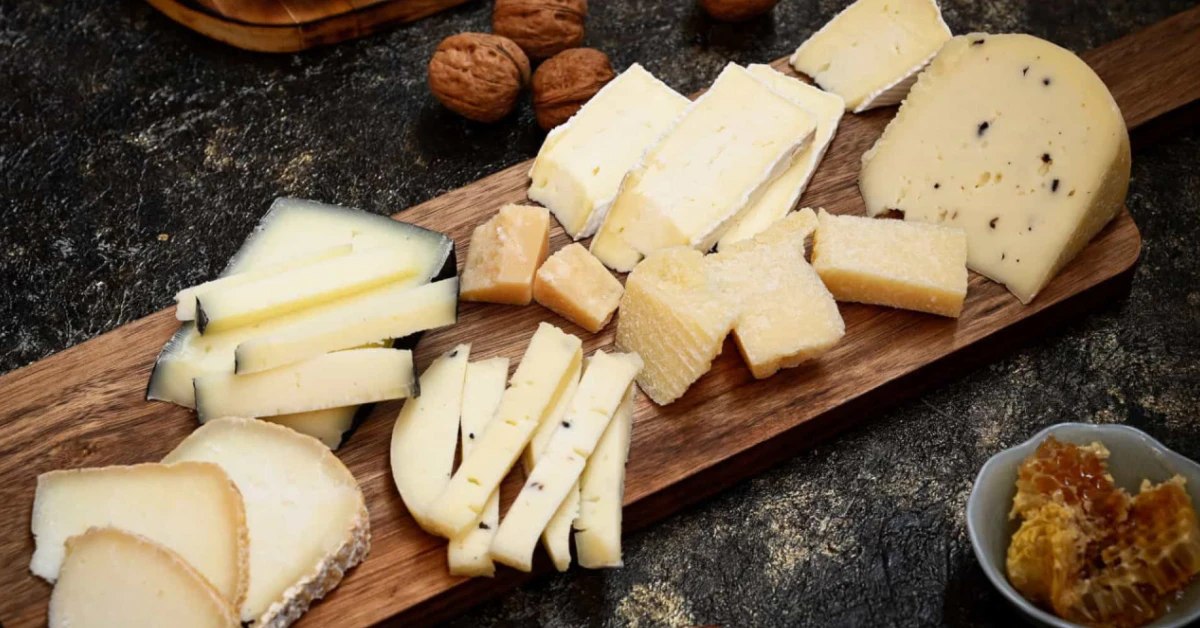



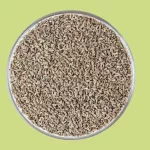
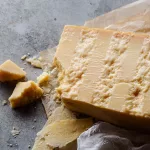

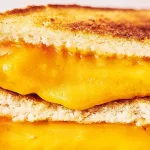





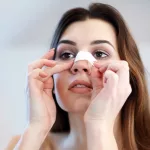



Leave a Reply
You must be logged in to post a comment.